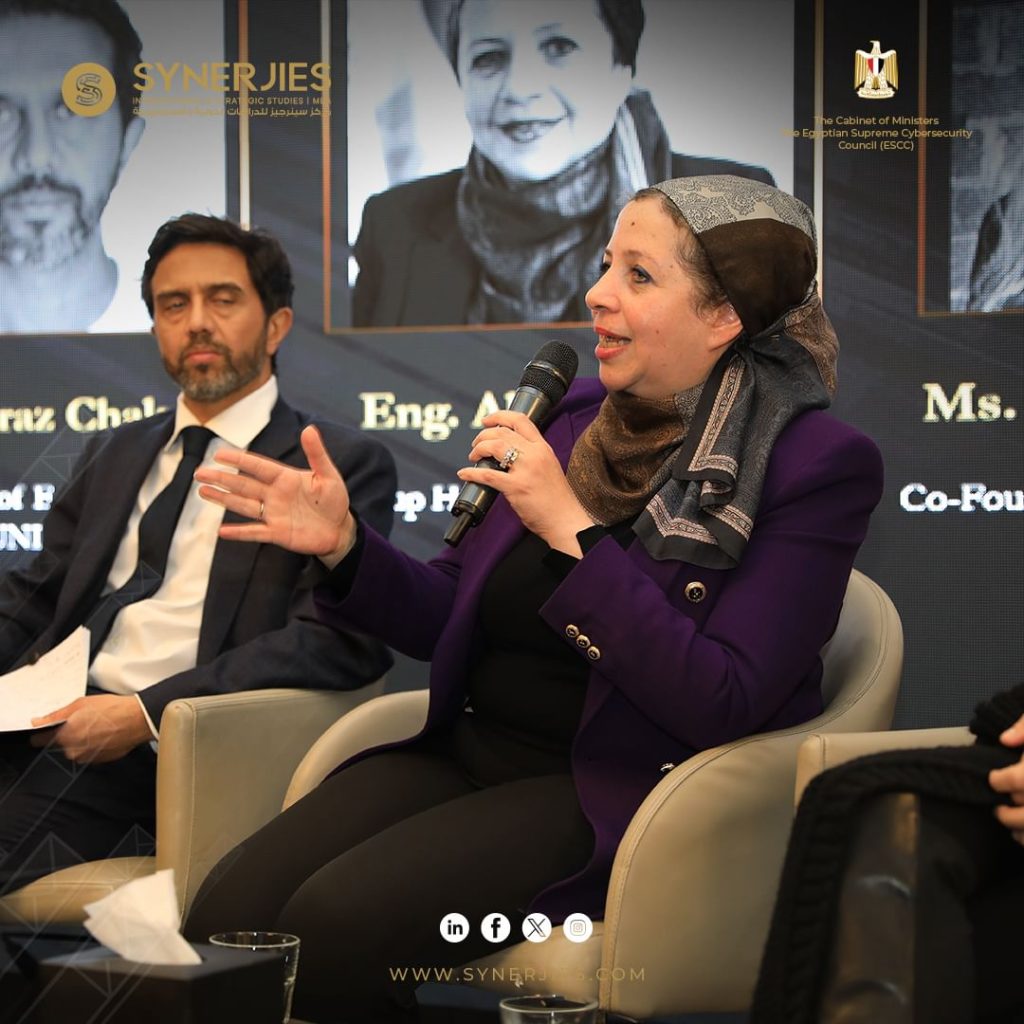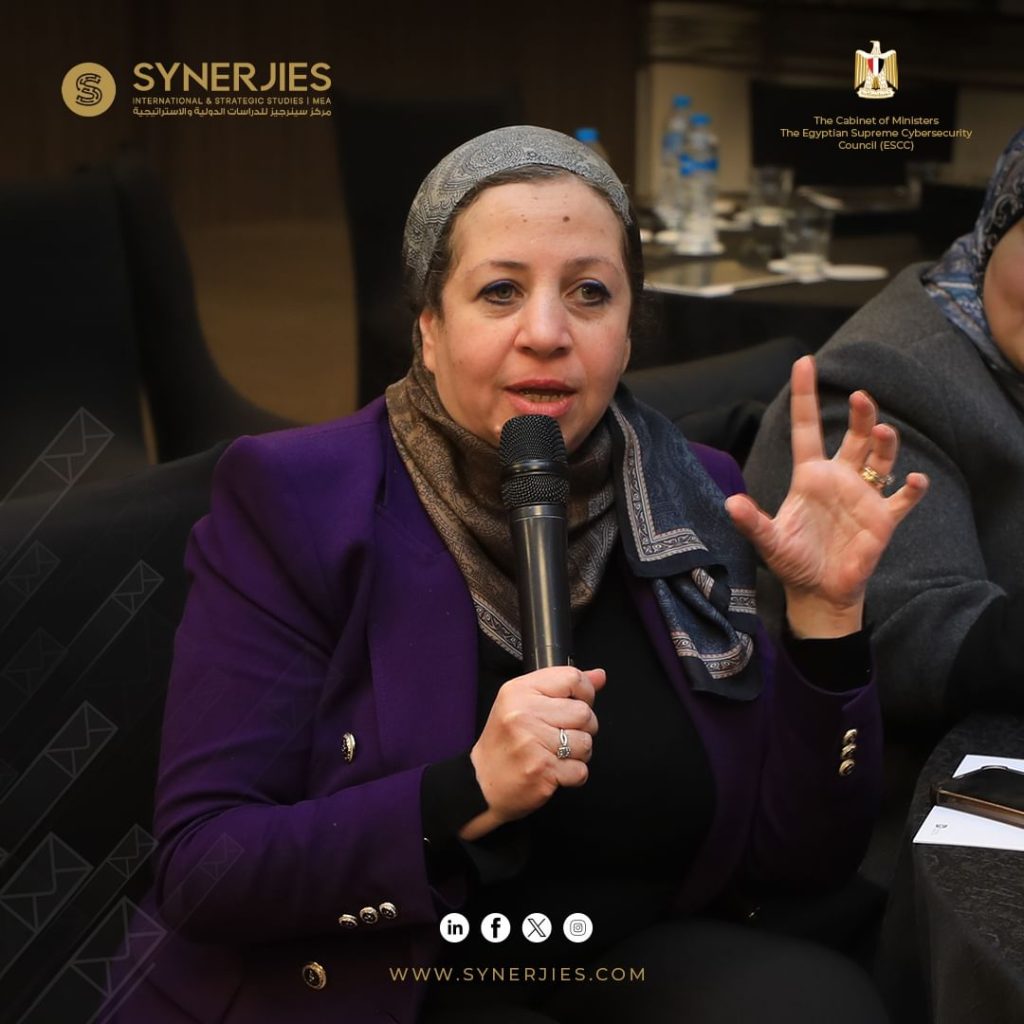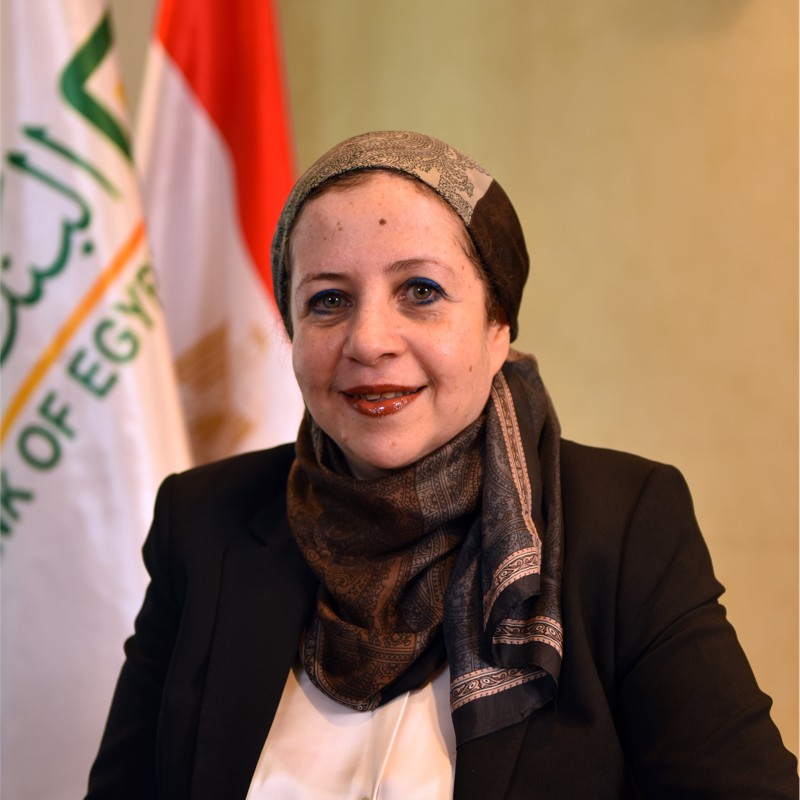In today’s online world, where information flows freely across networks and transactions occur at the speed of a click, cybersecurity stands as the bulwark protecting the integrity and confidentiality of sensitive data. Nowhere is this need more critical than in the world of banking and finance.
Recently, we attended a thought-provoking symposium on misinformation and disinformation organized by Synerjies, discussing why it’s important to double-check information around us and prevent the spread of false and inaccurate information.
We also had the honor of sitting down with Abeer Khedr, Group Head for Cybersecurity at the National Bank of Egypt (NBE). Her insightful discussion about cybersecurity awareness and tips to secure ourselves from fraudsters left us eager to share this knowledge with you before you check out your next online order.


Cybersecurity in Short
Cybersecurity is the practice of protecting computer systems, networks, devices, and data from unauthorized access, cyberattacks, theft, damage, or other forms of disruption.
It’s like the silent guardian of our digital age, working to ensure the safety and security of our world. It’s not only a technical necessity but a fundamental pillar of trust, enabling individuals, businesses, and nations to thrive.
How COVID-19 Increased Opportunities for Fraudsters
With COVID-19 keeping everyone indoors, online activity increased. But as people shopped online at a higher rate, so was hackers’ activity. And especially with Mastercard and Visa highlighting the spike in online transactions, fraudsters saw an opportunity to strike.
On the note of the symposium’s main theme, misinformation and disinformation, Khedr also added that during COVID, rumors were more rampant. People were frequently spreading inaccurate information online, and that’s when the attention shifted to raising awareness about fraud.
How to Protect Yourself From Fraudsters: Tips From The Expert


Besides businesses’ efforts to protect themselves and their customers from any fraudulent activity, such as creating awareness campaigns on different media outlets, like TV, radio, and social media, it’s important for you, as a user, to do your due diligence. Here are some tips from the expert:
- Don’t Download Anything From Any Link: It’s better to only download applications from official apps like Google Play and Apple Store.
- Don’t Give Out Sensitive Information: Never share private information with anyone. This type of information could range from card numbers and OTPs to national IDs. Yes, your national ID is private and shouldn’t be just given to anyone.
- Don’t Do Online Banking Services on Public Wi-Fi: If you want to order that new collection and enter your credit card details online, try using your mobile data or a trusted Wi-Fi source, and not public Wi-Fi.
- Always Report Fraudulent Calls: If you receive fake calls, report these numbers to your bank, which will then handle the issue and report them to the Central Bank of Egypt.
- Stay Vigilant: Make sure you stick to the best security practices. For instance, you need to have an antivirus on your devices, especially the ones you use for internet banking. Never click on a link if you don’t know its source, too.
Misinformation & Disinformation: Stay Informed
You might become misinformed or disinformed due to multitasking, being busy, lack of focus, or insufficient education.
So to keep the conversation going about misinformation and disinformation, as individuals, we should always try to spread the word. Shine a spotlight on the topic so that it remains in the forefront of people’s minds.
And remember, as Abeer Khedr advised, “No one will ever call you and ask you to share your personal information, except if they’re a fraudster.”
We Also Said: Don’t Miss It…Empowering Egypt: Visionary Mohsen Sarhan On The Egyptian Food Bank’s 2024 Goals



